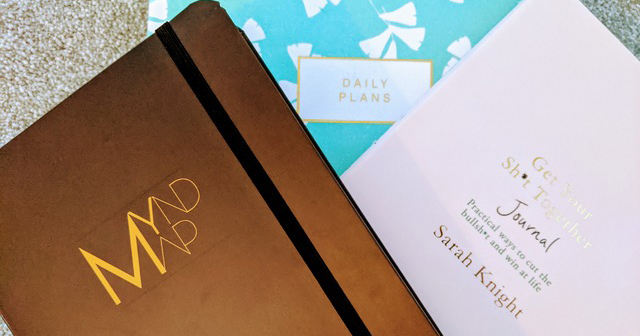Increase your productivity by sharpening your focus and getting rid of distractions, writes Alexa Terry.
‘… most people do not achieve the use of more than a minute fraction of their potential ability; the minority that outstrips the majority does so not because of its higher potential, but because it learns to use a higher proportion of this potential, that may well be no more than average – taking into account of course that no two people share an identical natural ability.’ (Awareness Through Movement by Moshe Feldenkrais)
Getting through daily tasks can sometimes feel like battling a level of Super Mario; navigating deathly piranha plants and fighting grumpy goombas to reach the castle at the end of the track – just beyond the flagpole, where we can see our task complete. Sometimes, simply pressing the start button is a struggle. As vocal coaches we have to juggle vocal study, administrative tasks, creating online content and marketing to name but a few. It’s also a balancing act for our clients who need to make time for singing practice, songwriting, audition preparation and learning repertoire. So, how can we as vocal coaches and singers maintain a sense of productivity to ensure that our full potential can be realised?
Here is a list of 10 ideas to get us started.
1 The ‘to-do’ list
Extracting the dizzy spin of “to-dos” from our brain and organising them into a succinct written list can help bring about some clarity of mind, order and intent. The list can be prioritised with colour coding and can help us to set realistic goals (which can even be mapped by the day or even by the hour for that extra motivational boost). Of course, we don’t want to become regimented or stiff in our creativity, but there are few things more satisfactory than ticking things off a to-do list – which, consequently, can provide us with a sense of achievement.
2 Avoid decision fatigue
I don’t like making decisions. In fact, I decide not to make them in most social situations. Ask me to choose which restaurant to go to next weekend and the stress will begin to bubble. Take me to The Cheesecake Factory and fatigue will engulf me as I stare at a menu which could challenge the length of The Lord of the Rings trilogy.
“Decision Fatigue” is said to be the decline in the quality of the choices that we make which is a result of decision making for a lengthy period. A study which is often referred to in research is one which was conducted on a set of judges and their decisions to grant prisoners parole. In an article titled The Effect of Decision Fatigue on Surgeons’ Clinical Decision Making (Emil Persson, Kinga Barrafrem, Andreas Meunier & Gustav Tinghog), the authors explain: “in a seminal study by Danziger, Levav, and Avnaim‐Pesso (2011), more than 1,000 judges’ parole decisions were reviewed. Danziger et al. found that the prisoners who came up for decision early in the morning received parole about 65% of the time, but this rate then steadily declined to only 15% just before a break.
After morning and lunch breaks, the chance of parole was again high. The authors concluded that making decisions is depleting, and once depleted, judges start to look for the easiest and safest option, which is to stick with the status quo and leave the prisoners in jail.”
If we can limit the amount of mundane decisions we have to make, like choosing what to have for dinner or selecting a daily outfit (it has been reported that Barak Obama has a small wardrobe in order to avoid decision fatigue), perhaps we will have more mental capacity to focus on the important stuff.
Talking Point
Could this mean that the clients we see later on in the day have an automatically less effective lesson, or that those singers asked to audition later in the afternoon have less of a chance of getting the job? It brings a new meaning to the phrase “in the right place at the right time”.
3 Limit 21st Century distractions
Time is easily wasted on social media, especially when we are amazed at how awesome we look as a giraffe on a Snapchat filter. Often, we can be wading through Instagram stories to find we are absorbing more of what celebrities are having for their breakfast than what actually brings value to our lives. Facebook notifications ping, emails buzz and WhatsApp messenger hums distracting us from the task at hand and, therefore, deteriorating productivity. Leaving our phones in another room and restricting social media time will limit distraction and might just give us that motivational boost we have been missing.
4 Change your environment
Staring at the same four walls can dry up inspiration and stagnate productivity. Changing the environment that we work in could be the very stimulus to exciting efficiency, whether that be setting up office in another room of the house (the bathroom seems to be a favourite of mine!) or relocating to a local cafe.
Desklodge are a company who have created imaginative workspaces to help enhance workers’ productivity. Currently only based in Bristol and Basingstoke, one might find themselves studying vocal acoustics on a pirate ship or writing a set of lyrics in Narnia!(www.desklodge.com)
5 Exercise
In a blog article written for The Body Coach, author Kieran Alger says: “Relieving stress and clearing the head is undoubtedly one major benefit exercise can have on your work life. It can improve your mood and sharpen up your intellectual capabilities. A 2013 study found that just one bout of exercise improved the cognitive processing of adults of all ages. Exercise can boost concentration, help you learn faster, improve your memory and enhance your creativity – everything you need to fire on all cylinders at work.”
A simple morning stroll or a set of jumping jacks can have a profound impact on productivity, even if we wake up feeling foggy. Allocating a pocket of time to exercise may just allow us to tick more things off our to-do list. You can find Kieran Alger’s article HERE.
6 Take Breaks
As explored above, “decision fatigue” can lower the quality of the choices we make. What sense is there in hammering away at something for hours without giving ourselves a few minutes to refresh? We can set ourselves a goal with a time limit so that, at the end of that hour or by lunchtime, we can review our progress over a cup of tea and a biscuit.
7 Don’t answer or say no
Being self-employed means that we could go out for a two-hour pub lunch, or answer a call from a friend who we can chat nonsense with for a while. However, it might not be the best idea to risk breaking away from the core of productivity to have a Love Island catch-up, or munch away on a daily a la carte. It’s ok to not answer the phone (unless it’s an emergency, of course), or to reschedule that lunch date for another day.
8 Delegate
In his book Voice Teacher Influencer: Grow Your Studio, Increase Your Authority, and Make More Money, John Henny states: “We all do it, getting stuck doing the mundane tasks of running our studios… You need to value your tine as much as, or more than, those who pay you for it. When you are doing low-wage tasks, you are robbing yourself of your true value and putting your business growth to the wayside.”
If we have the financial leeway, delegating time-consuming admin duties to a third party might be a consideration. Once shared, the weight laying heavily on our productivity and potential may well be lifted. You can read our literature review of The Voice Teacher Influencer HERE.
9 Reward system
In an episode of The Big Bang Theory, Sheldon Cooper offers Penny a chocolate as a reward for what he considers “good behavior”. Perhaps using such positive reinforcement techniques can help us enhance our own productivity, making that slice of cake taste much more delicious as a reward for an hour or two of focus.
10 Accountability
Sharing our aspirations with friends or a support network makes us accountable and, therefore, responsible for getting the job done. Here at BAST, we encourage you to post your goals in our Facebook group for accountability purposes, as well as for the added support from us who will be cheering you on from the sidelines.
Helpful planners and books for productivity:
- Daily Planner Journal
- Get Your Sh*t Together Journal by Sarah Knight
- Mynd Map Journal
If you would like to share your successful productivity tools you can find me and the BAST trainers in the BAST Facebook group. CLICK HERE to join.




